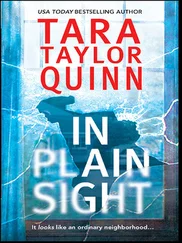“Eh?” she says.
“I’ve run out of fuel,” he says.
She shrugs her shoulders, acting the part of the Italian, making exaggerated gestures with her hands like a terrible actor in a B movie. “Ma non capisco!” she says.
But the man does not move, and Bella, taking pity on him, lowers her window a little farther so she can lean out far enough to see what sort of shoes he is wearing. Bella is certainly enough of an Italian to be superstitious about footwear. If you are good at heart, she thinks, you tend to have shoes of good quality, or at least ones that are polished and looked after. This man has on an excellent pair of shoes. In fact, they look unquestionably Italian.
“What would you like me to do about it?” Bella says.
“Do you have an empty jerry can in your trunk?” he asks.
Bella says, “I doubt it,” but she pushes the button to open it so he can make sure. They all wait while he pushes his car off the road, then he pockets the keys and sets off, presumably in search of a petrol station.
She calls after him. “Come. Get in.”
He tells her there is a gas station less than a mile away, and he knows how to get there. He tells her his name and offers her his card.
“What about you?” he says. “Where are you from?”
“I have no card to give you,” she tells him.
“But you do have a name?” he teases.
She gives him the absolute minimum, her first name.
“How did you come by an Italian name?” he asks, and despite herself, she volunteers a little more.
“My father is Italian, my mother Somali,” she tells him.
At the gas station, she waits while he borrows a jerry can and pays for fuel to fill it. She brings him back to where his car is parked and waits until he has it running. Once again, he comes to her window. He thanks her and says, “You realize you haven’t given me your number.”
She says, “Maybe I’ve none to give.”
“Or an e-mail address to write to?” he says.
“Maybe I don’t wish to.”
“As you like,” he says. “You have already done so much for me.”
“Maybe you can do me a good turn,” she says.
“Anything,” he says, enthralled.
She gives him the address of the UN offices in Gigiri. Does he know a shorter way to get there? she asks. She explains that she has an important appointment for which she cannot afford to be late.
The Kenyan gentleman with the shoes to die for tells her she has been needlessly sitting in traffic — Cawrala, the GPS woman, has sent her on a most indirect route. He gives her a quicker way, carefully writing out the directions on a pad she gives him while he talks her through it. As a result, she arrives at the UN offices with half an hour to spare.
Which turns out to be a good thing because the security measures at the gate are draconian. It’s as if she were waiting to board an El Al flight to Tel Aviv, she thinks. The blue-clad Kenyan guards manning the gates are rude beyond belief, barking instructions. One of them, waving what looks like a wand as if it were a scepter, directs her to turn off her engine, leave the key in the ignition, get out of the vehicle, and take all of her personal effects with her. She approaches the gate on foot, joining one of the two queues. When she gets up to the gate, a man sitting in a cubicle extends his hand through a small window to take her passport; in return, he passes her a long form to fill in.
As she does what she is told, she wonders whether similar measures were in force at the UN office in Mogadiscio where Aar was killed; if they had been, perhaps he would still be alive. The report was that the bomber simply walked into the compound and detonated his device, but this has not been confirmed. She used to hear from Aar how corrupt the Ugandans were. They provided the largest contingent of soldiers for the African Union, otherwise known as AMISOM, a mainly U.S.- and EU-funded force numbering close to twenty thousand. The Ugandans, being the first to arrive in the country and the strongest, were assigned to guard the international airport and several major government buildings, including the presidential villa and the National Parliament. Rumors circulating among the Somalis that were picked up and published in the foreign press say that some of the Ugandan top brass serving under AMISOM were making lucrative deals selling weapons to the Shabaab terrorists. On Aar’s penultimate trip out of Mogadiscio, he told Bella, he had gotten through all the checkpoints and into the VIP lounge without anyone so much as opening his suitcase or even putting it through a scanning machine because he was in the company of a young man whose family owned one of the biggest and most expensive hotels near the airport. All the guards knew him and greeted him by name; the young fellow was so brazen that he mentioned the name of the bar in the city where he would meet them later that evening.
Bella finishes filling out the form then watches while a couple of men place some sort of device in the shape of a huge shovel — a metal detector, she presumes — under the belly of Aar’s car and another one gets into the car with a gadget that looks like a small vacuum cleaner to check the interior for explosive devices.
Then she loses sight of the car as she passes to yet another cubicle, where yet another blue-clad officer asks for her name and then slides her document out of a pile. He checks that her passport photograph matches her face. Bella is aware that she seldom looks like her official photograph, which tends, like everyone else’s, to look like a mug shot. But she seems to pass muster, and he gestures for the form. Now a young woman asks her to look into a lens, and then she is fingerprinted.
“There is one more hurdle,” the blue-clad man standing outside the second gate tells her. He directs her to walk through a body scanner after putting her shoes, her belt, jewelry, and mobile phone in a bin, just like at an airport. And just like at an airport, she is admonished to take out any laptops and liquids and put them on the conveyor belt as well.
Bella is relieved to see that Aar’s car has made it through as well. “Triumph!” she says to herself. After the scanner, a woman administers a thorough body frisk, pointing out to Bella that she must open her fists. “You are an adult,” she chides Bella, “not a baby. What are you holding?”
Bella is about to say, “Nothing,” when to her great surprise, she discovers that she is, in fact, holding something — the card given to her by the stranger with the exquisite shoes. “Kenneth Kiplagat,” she makes out, the card still in the tight grasp of her hand, as if she is loath to let go of it. Then she relinquishes the card and the female guard, who puts it through the scanner, says, “Just in case,” before she completes her pat down.
Bella retrieves the card and puts it in her wallet. Then she gets back in her car and drives the hundred and fifty meters or so to the visitors’ lot. She waits there until it is time for her appointment, preparing herself mentally as best she can. Then she steps out of the car, pulls herself together the same way she has seen gymnasts and other Olympic athletes do just before they compete — puffing out their chests, pumping the air, and mouthing silent encouragement to themselves. “Coraggio,” she says to herself. Then she walks into the building.
The receptionist says immediately, “Our commiserations, Bella. We all loved your brother, and we will be missing him. He was a gentle soul, genuinely friendly and good at heart.”
Bella feels the tears beginning again; it is only natural, she thinks. But she is grateful when a second woman says to her in a businesslike way, “Gunilla is waiting. Immaculata will come down to escort you to her office shortly. Please take a seat and wait for her here.”
Читать дальше












